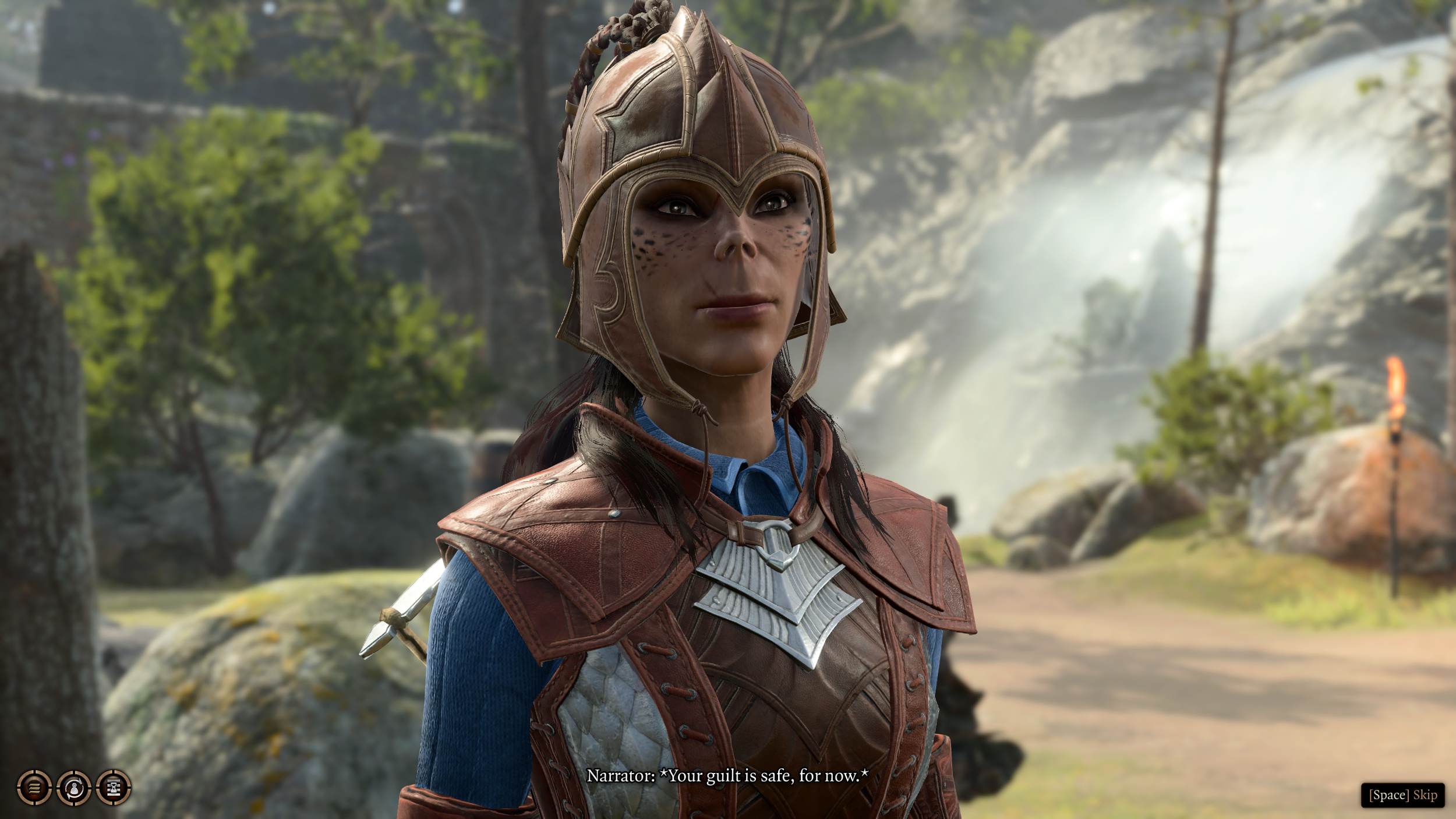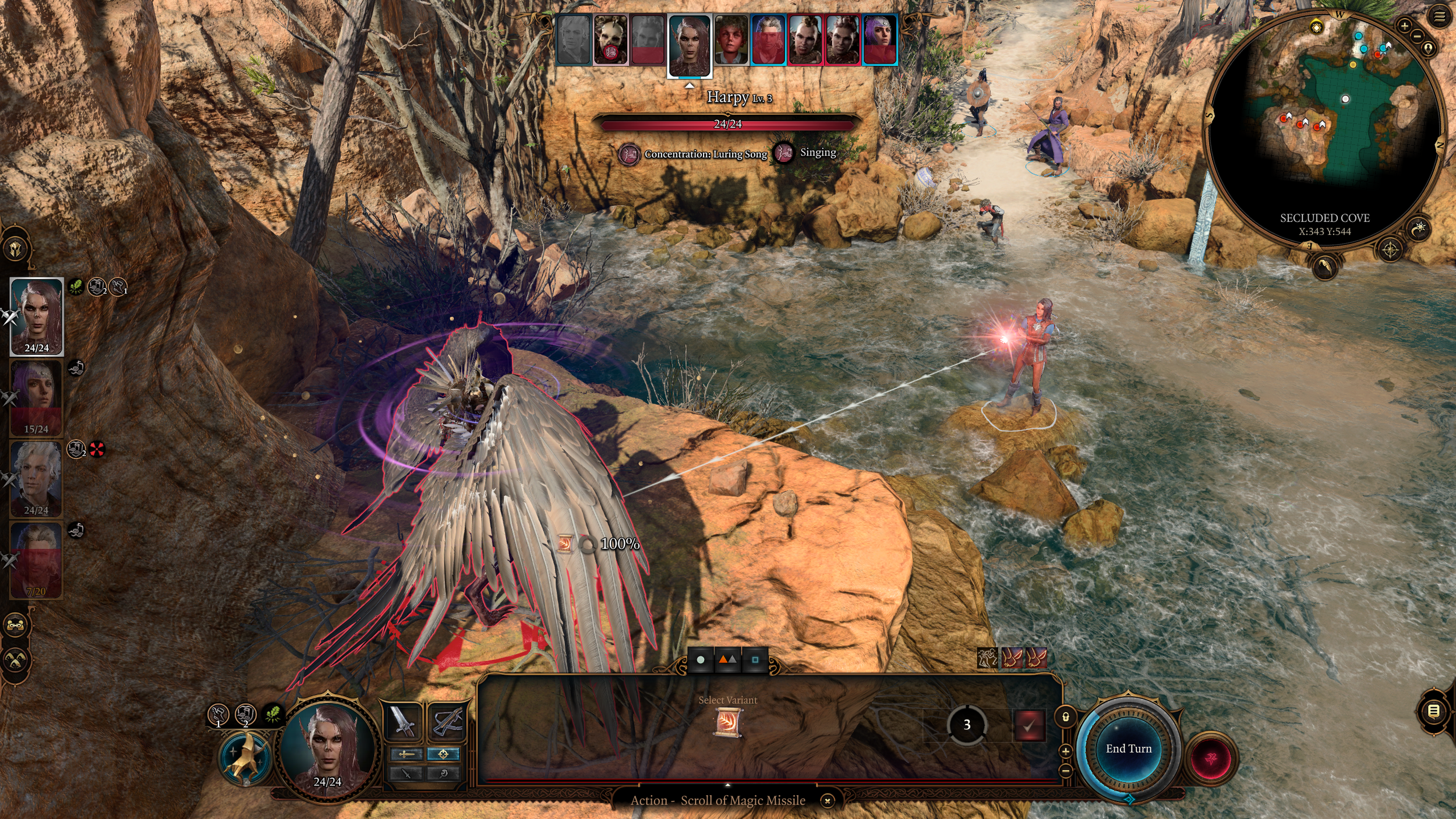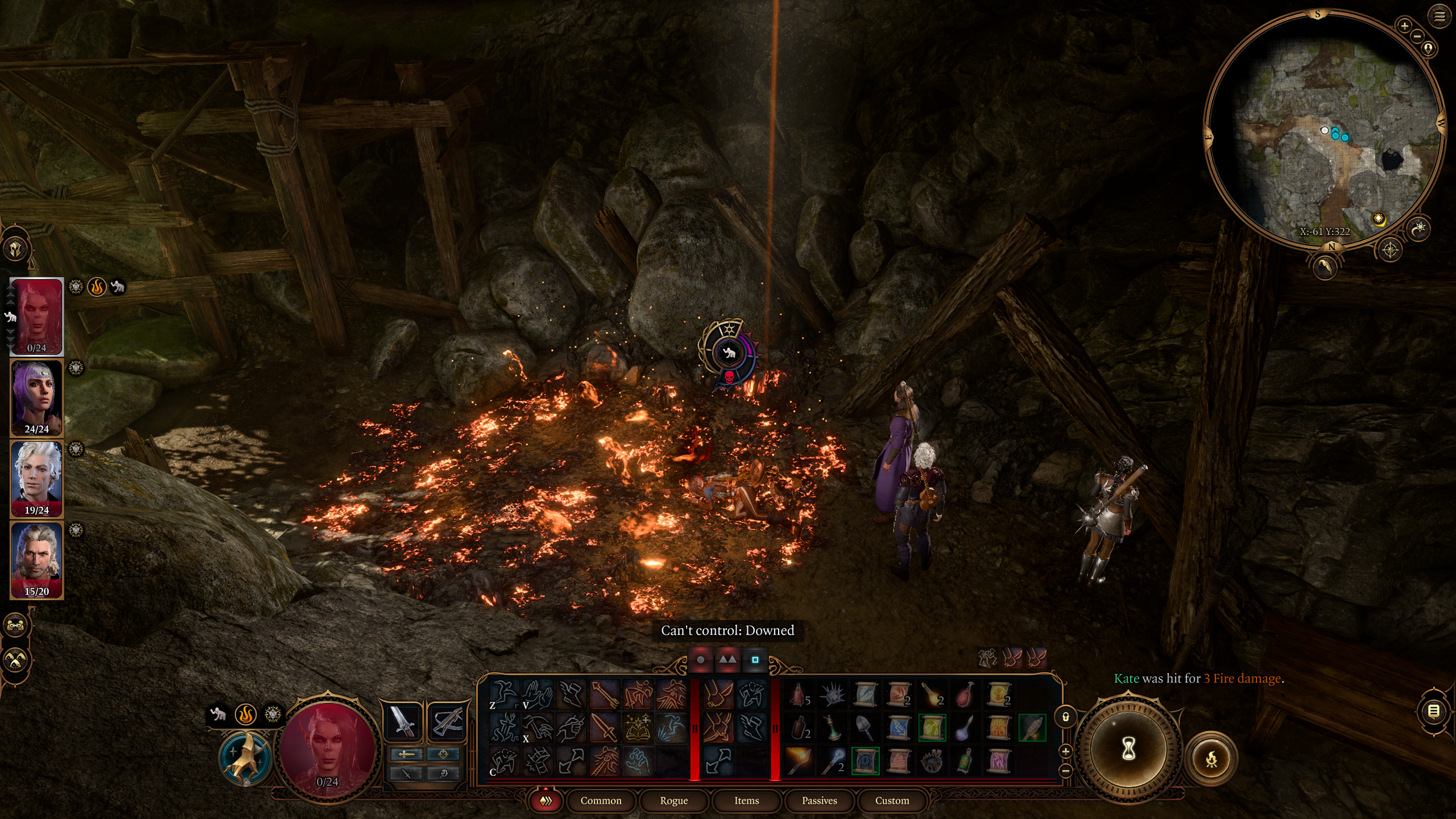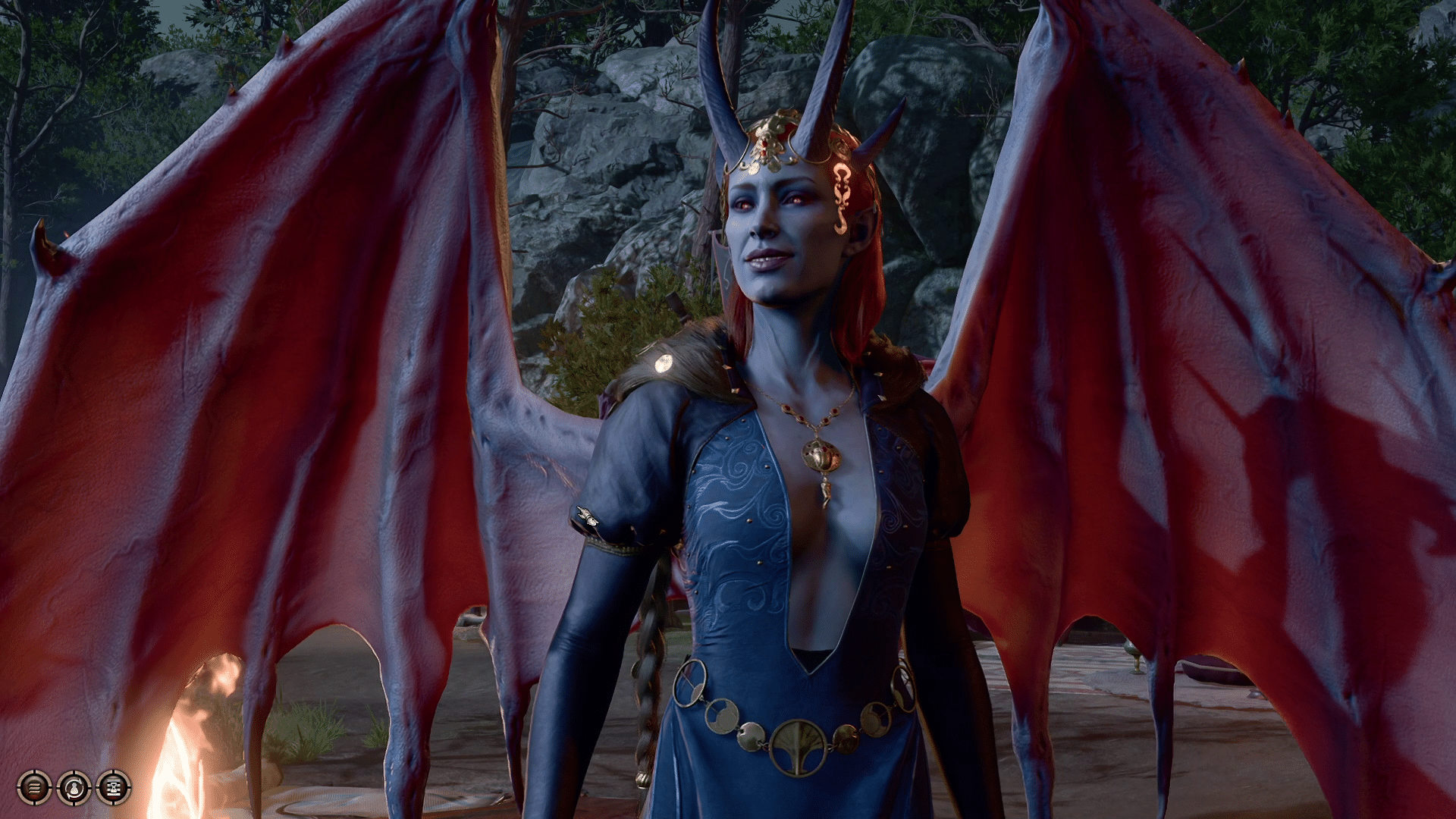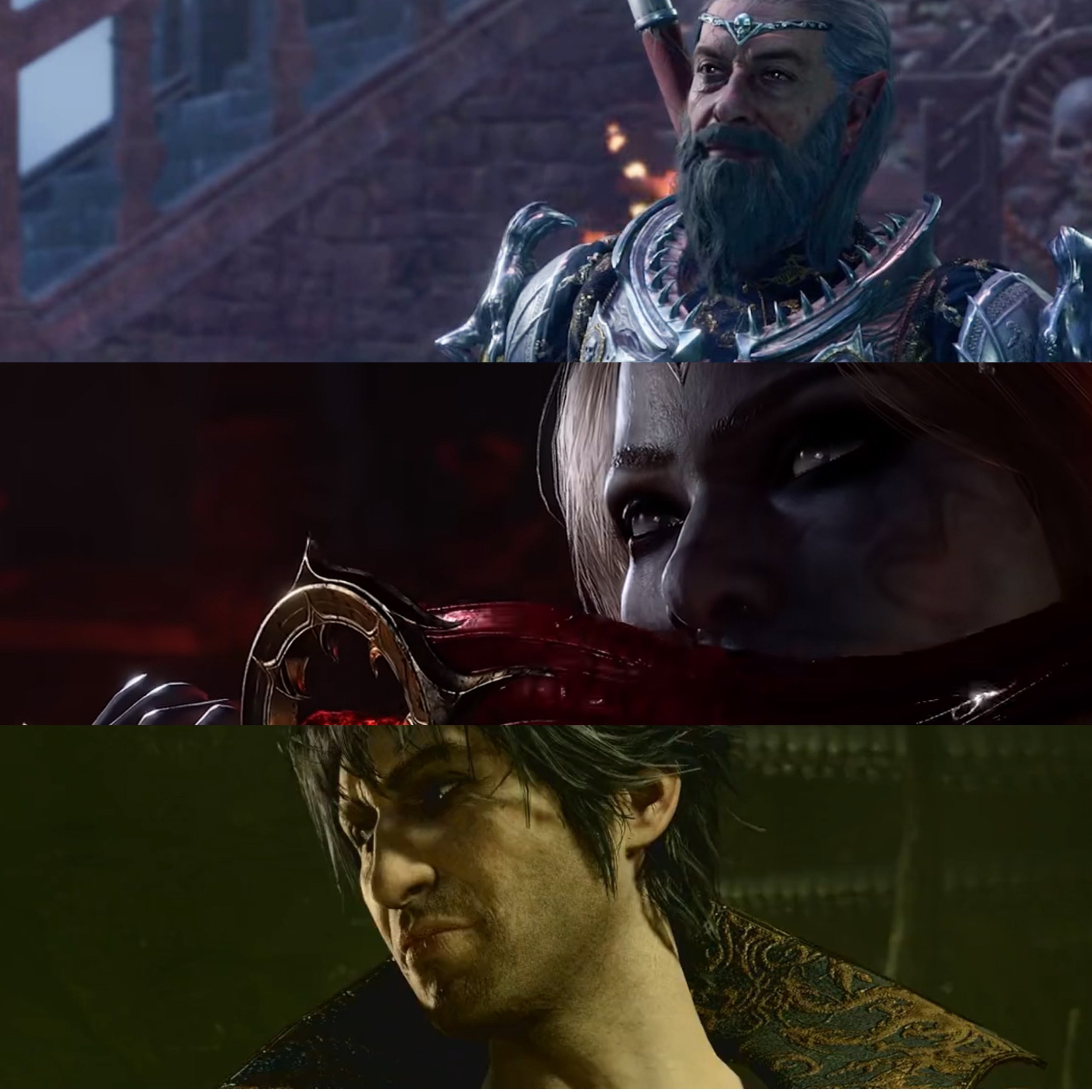Review-In-Progress | Baldur's Gate 3 - Fear And Loathing In Faerûn
First impressions are everything, this opening paragraph should detail the basics of Baldur's Gate 3 and my overarching opinions of said game. But quite frankly, this Dungeons and Dragons CRPG is too vast to condense in such a manner, even for an early impressions piece that only details the first quarter of the experience.
Instead, this is, in part, an account of my journey through Larian Studios' latest story-driven epic. Why critique a game this way? Well, this is because Baldur's Gate 3 is a game all about individual experiences and bending and pushing the rulesets and parameters of virtual Dungeon Master to its very limits. This is strange considering how linear the opening sequence and character creator appear to be.
There might be less character creation sliders than you except but you can still look cool as hell.
From the offset, customisation was slightly more limiting than I was expecting for such a large-scale RPG, but sometimes looks can be deceiving. Instead of being able to tweak your brow size and cheekbones, more unknowingly substantial changes were added to streamline the process and add a newfound depth to the protagonist. You might not be able to create a perfect recreation of Ryu but you can colour in the rough edges of your protagonist's history and motivations.
The most striking example was the preset origin options which presented video overviews detailing character motivations. Players can choose to create a wholly original character with a custom backstory, but as someone that gets overwhelmed easily, I picked one of the preset characters and never regretted this decision.
One thing that caught me off guard was that stat points were automatically assigned to the race and class (specialisation) of the character. In terms of immersion, it presented the unique opportunity to embrace how my character would play rather than defaulting to a safer, more balanced playstyle. With the worry of statistics lifted, it's easy to be lured into the brutal and intimidating world of BG3.
The opening sequence is set on an alien ship called The Nautiloid, a flying mindflayer flagship which shares a passing resemblance to the macabre visuals of body-horror artist H.R Geiger. This strange initial setting for a fantasy RPG introduces the basics of the combat system after a bombastic cutscene that sets up the story. I should mention all this involves a worm-like-parasite-thing being forced into the brains of all the main cast that have been abducted by the mindflayers.
Combat seeks to accurately recreate Fifth Edition D&D, but if you are coming to this as more of a video game gamer than a tabletop one you could say it takes a lot of cues from the modern XCOM titles. There’s a huge focus on the element of chance and weighing percentages to determine whether you’ll hit an enemy or not. This works really well for recreating the D&D game as luck is a big part of the experience, even if it can sometimes feel like the dungeon master wants to kill you and grind you into dirt at every possible opportunity. BG3 also provides a vast array of magic and abilities, spell and cantrips (which if you've never played the tabletop game you might need to do some Googling as to the differences of each) that can be used in both combat scenarios and moment-to-moment exploration.
Hey, Top Tip!
Google what “Shared Initiative” is if you have never played D&D before, comes in handing.
At first glance, the list of powers can seem overwhelming, especially when showcased within the UI hotbar. Individual characters can have access to dozens of abilities from the start and the game isn’t exactly going to walk you through what preparing a spell entails. However, accessible one-handed mouse controls and simple objectives on The Nautiloid ship encourage the experimentation needed to push through the initial learning curve without taking away any agency from the epic opening sequence.
Once the game opens up, more individuals can be added to the party, all of whom have interesting backgrounds and colourful personalities that will often clash with each other. Thankfully the game takes its time introducing the more outlandish abilities, as a steadily paced levelling system allows players to become comfortable with the options at their disposal.
The map design of BG3 disregards detailed waypoints in favour of having general markers to “the next big thing”, but some of the best ways to complete a mission involve exploring, talking to people and initiating alternative routes in certain areas. It's a natural form of exploration which feels like the tabletop RPG it was inspired by. In comparison to other open-world titles, satisfaction comes from overcoming unexpected challenges and traversing the environment in a self-controlling manner rather than completing a very set objective. This puts a nice emphasis on the journey in the gameplay itself rather than using it as a means to get to an objective (not that there’s anything wrong with that, it's just nice to have an inventive change of pace).
During exploration, BG3 feels like a true sandbox with tons of potential for organic, player-made stories within the world. It's a huge step up from games like The Witcher and Skyrim which often limit world interaction to the manipulation of dialogue options if you have enough points in a skill or NPCs getting aggressive if you attack, which were impressive at the time of their release.
BG3 expands on both of these well-trodden interactions in different ways. Big choices take character traits into consideration to realistically portray unexpected encounters. Most big choices are accompanied by a dice roll that determines the outcome of the event, which, just like an actual game of D&D, can force characters into unexpected situations that have lasting consequences. Alongside this, the varying societies full of bipedal fantasy species can be interacted with to a bewildering degree. Whether it be a human being started by Githyanki or characters being shocked when a dwarf passed a strength check, almost every NPC I encountered has at least a line of dialogue contextual to their individual situation. Somehow this also expands to every animal as well, which can be spoken to by certain species or by using magic.
And yes, before you ask… All your companions are hot.
Especially Karlach… like… literally.
Possibilities seem almost endless with this level of detail and power, but occasionally BG3 buckles under the weight of its own potential as some experimental approaches to situations left me in unwinnable situations (though, thankfully, it's easy to fast travel out of any dead end). It doesn't quite reach the immersive sim levels of interactivity that the potential naturally advertises, but it does a great job maintaining the visage and making you feel like your imaginative planning could always work.
Side areas are often filled with hard-to-reach secrets and a litany of traps that force you to take advantage of your party’s arsenal of skills while keeping players on their toes and forcing them to constantly survey the environment. BG3 constantly tests the player's perception through these methods and it seems both my character’s - and my own - are terrible.
I constantly got caught in traps and even let a poor gnome tied to a windmill unintentionally fly to his death by pulling the wrong lever. It's likely that some of my blunders were a result of rushing through the game for a review, but can’t deny that it led to a lot of interesting scenarios that guided my adventure in an interesting manner and created what felt like unique stories.
There are many surprisingly large areas that can take a lot of resources to fully explore and may require multiple visits. Instead of being arduous, BG3 uses a robust teleportation system that makes travel through deep dungeons and longer areas easier even after they’ve lost their initial delight by allowing you to return to camp at any point.
Resources, including health and magic, are finite and can only be fully replenished by camping for the night, but it's often worth pushing through the fatigue for as long as possible to save these items. Perishable resources and limited time powers disappear upon sleep and this paired with contextual story urgency, to find a capable cleric, makes the end of each in-game day feel perilous. As the game progresses, more complications push the limits of the team, which provides a growing challenge that rewards management and item gathering through exploration.
In my playthrough, health and stability were often risked in favour of ambition, this led to a few untimely game-over screens, but for the most part, even my most reckless outcomes became a big part of the adventure. Throughout my journey, I was forced to pick sides in ongoing wars I didn’t start, and likely won’t end, in the name of progressing my own personal quest.
The game itself allows players to feel the consequences of being an outsider butting in on ongoing current affairs by shaping a narrative based entirely on player actions. It is entirely possible to gain the context necessary to create an informed decision by using one's detective skills and initiative to uncover mysteries, but by default, BG3 left me ill-equipped to handle the delicacy of such impactful choices, though that's not exactly a bad thing.
For one, it accurately showed my own weakness in approaching such problems and allowed the game to play out in a manner that felt unique, interesting and often heartwrenching. Initially approaching problems with haste and instinct also allowed me to connect with the darker themes of BG3 which include looking out for oneself and feeding addictive, feral personality traits. This is less like a Fallout quest with no “good” ending where you have all the information to decide what bad things happen and more like that community scene where Troy walks into the room on fire and you’re asked to make a life and death decision with little information.
Oh… this could have gone better.
Inspirational events are moments in the story that satisfy a party member's needs. My character, for example, has a bloodlust trait, which essentially means she wants to see everyone turned into a mangled corpse, no matter how well-mannered they are. This was initially based on my own real-life issues surrounding IED, or anger management, that I had during adolescence, but the brutal world of BG3 twisted my intentions by rewarding such heinous actions with dice re-rolls in a way that feels hideously enjoyable.
The unattainable quest to do right in the Forgotten Realm has made me jaded and want to focus on the smaller picture, that being the well-being of my party members rather than the world and its citizens. In a very real sense, the game mimics my own pessimistic views about my ability to change big societal issues, instead focusing on making life better for those I care about and myself. Being given the opportunity to wield such a surprising level of power reinforces this viewpoint as I handle politically sensitive issues with the grace of a bear, all while having raunchy, passionate love with anyone that looks at me eagerly.
Creating a character in my likeness has been a really interesting experience, the way BG3 perverts personality traits has successfully allowed me to embody someone that feels unlike myself but I carry a deep connection with. Strangely enough, I've never been able to experience this dichotomy before, as I have a clouded imagination stemming from Autism and it makes certain mechanics hard to engage with.
RPGs with their vast storytelling potential have always appealed to me as someone that enjoys looking into new perspectives and wishes to interact with the world in a different way. But many of the most celebrated titles, such as Disco Elysium, the Fallout series and even the original Baldur's Gate games require players to read through lines of text to picture backstory, lore and, in some cases, big story setpieces, which is unfortunately something I often struggle to see without being explicitly shown. Luckily for me, BG3 takes the Bioware approach of providing lavishly detailed scenes that focus on scenarios happening in the moment which, for those that need a different frame of reference, gives dialogue the feel of a highly produced TV show that adds interactive elements to spellbinding writing and performances.
Ahhhh, come on! Even the evil devil ladies are hot? That’s not fair Larian.
Another element that helps bring the world to life in my mind is the lavish amount of environmental detail within a distinct set of varied biomes. By default, the camera shows an isometric perspective of the world, which shows off a large amount of the game's gorgeous graphics and provides a canvas perfect for point-and-click traversal. Zooming in adds a shocking level of detail that leaves nothing to the imagination, which makes sense given that every cutscene simply uses a different camera angle often close to characters’ faces to capture performances. This is even more impressive when you remember that basically, every non-playable character can engage with the player in this manner.
Unfortunately showcasing the spectacle of such an ambitious title comes at the cost of performance, my experience was admittedly rough on a mid-range gaming PC. Lots of pop in that was required to see anything but the ground occurred every time I loaded a new save, which came after some lengthy loading screens and, for the first ten or so minutes, there would be a likely chance the game would freeze multiple times during gameplay as assets streamed into memory.
Do be warned, if you are excited to hear the voices of JK Simmons, Jason Isaacs or Maggie Robertson you might be waiting a while.
Editor’s note: I am 40 hours in and still haven’t met any of these characters.
Outside of this, there were also minor bugs including some occasional cut-off lines and black boxes randomly appearing during cutscenes. It's likely these latter issues will be fixed during patches and the performance will be much better on higher-end PCs and other systems. However, the decision to abandon checkpoint-based autosaving is a massive problem that will lead to many hours of lost save data if players don't save regularly.
Unfortunately, at the time of writing, these issues make the game less accessible to casual audiences. This is a real shame, as BG3 tells a dark and often gross tale that successfully combines exploration, immersion, storytelling, and worldbuilding in a way that fans of any fantasy media will find something to appreciate within.
Even though BG3 is an incredibly ambitious and long title, the pacing hasn't suffered in the 20 or so hours I've managed to play. It was shockingly easy to spend entire days immersed in the world, as tons of surprising and thought-provoking events were constantly thrown at me, no matter whether I decided to rush through story missions or spend hours chatting to comically chaotic goblins.
There's a lot to talk about in just the first quarter of such a gargantuan game. The world design and attention to detail are stunning, strategic gameplay in both exploration and combat scenarios is sure to keep anyone with even a passing interest in fantasy settings engaged, and the writing is so good that even the EULA agreement is worth reading. I can't attest to the conclusion, but if Larian manages to keep this momentum throughout, it'll be hard to see Baldur’s Gate 3 as anything other than the definitive fantasy RPG for this generation.


